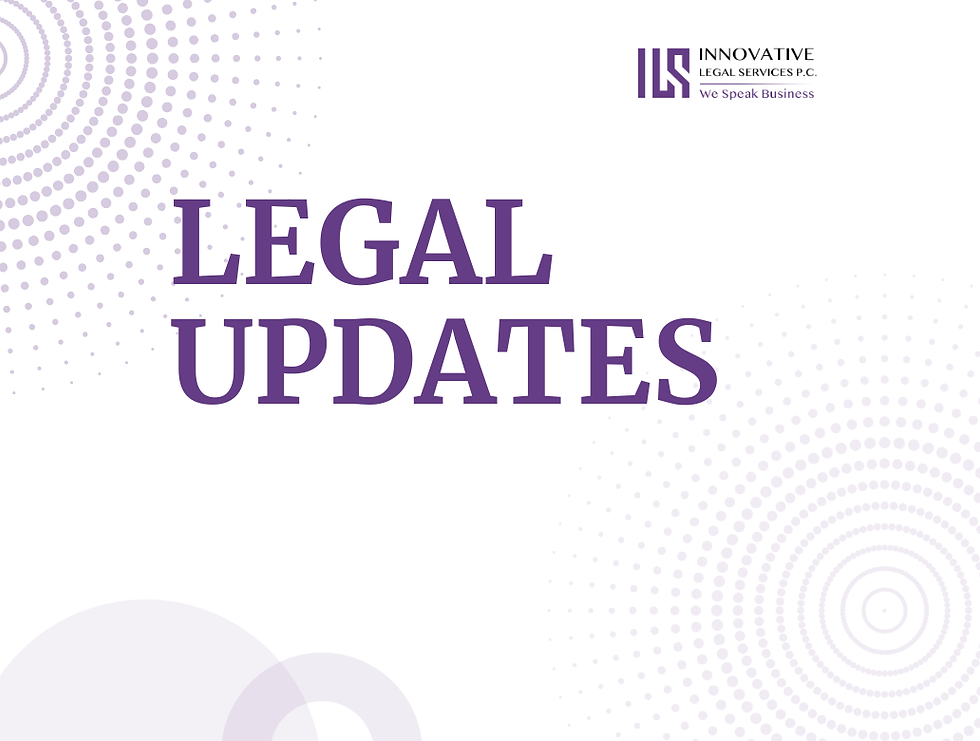Assessing PAFACA's Impact on TikTok and Global Tech Regulation
- Richard Liu
- May 2, 2024
- 3 min read
The recent passage of the Protecting Americans from Foreign Adversary Controlled Applications Act (PAFACA) signifies a pivotal shift in U.S. regulatory measures concerning foreign-owned digital platforms. This legislation, requiring TikTok's parent company, ByteDance, to either divest its U.S. operations or face operational bans, highlights the evolving security dynamics within the digital domain.
For additional information regarding the Protecting Americans from Foreign Adversary Controlled Applications Act, and to find out how this could impact your business, please contact our Managing Partner, Richard Liu, at richard.liu@consultils.com.

Background
Since TikTok’s introduction to the American market in 2017, it has attracted over 150 million users and considerable national security scrutiny. The app’s extensive data collection capabilities have raised concerns about potential Chinese governmental access, leading to extensive reviews by the Committee on Foreign Investment in the United States (CFIUS). Despite these measures, unresolved security issues underscore the complexities of regulating digital assets.
Understanding the New Legislation
The Protecting Americans from Foreign Adversary Controlled Applications Act directly targets applications like TikTok that are under significant foreign influence. Here's what the law entails:
Deadline for Compliance: The act imposes a stringent deadline of 270 days, with a possible 90-day extension by the President, for affected companies to either divest or cease their operations in the U.S.
Data Export Requirements: To protect user rights, the law mandates that these applications must facilitate users in exporting their data before the restrictions fully come into effect.
Enhanced Oversight: The act empowers both the President and Congress with enhanced oversight capabilities, moving beyond the traditional scope of CFIUS to address the threats posed by digital platforms that have global user interactions and data collection capacities.
This legislative approach not only addresses the immediate concerns associated with applications like TikTok but also sets a precedent for future foreign technology engagements.
Controversial Aspects of PAFACA
Bypassing CFIUS: The law circumvents the traditional CFIUS review process, allowing Congress to directly intervene in foreign tech dealings, which could set a precedent for future governmental actions outside established frameworks.
Absence of Safe Harbor: There are no protections for firms previously cleared by CFIUS, introducing legal uncertainties and potential deterrents to foreign investment.
Legal Challenges and Constitutional Concerns: TikTok's impending legal challenge argues that the law infringes on constitutional rights, particularly regarding free speech, highlighting the potential for judicial disputes over its enforceability.
Conclusion
As TikTok gears up to contest the legality of this act, the outcome will likely set a precedent for how the U.S. navigates future tech regulations and international business relations. Keeping abreast of these changes is crucial for businesses involved in international trade, tech investments, and data security.
For additional information regarding the Protecting Americans from Foreign Adversary Controlled Applications Act, and to find out how this could impact your business, please contact our Managing Partner, Richard Liu, at richard.liu@consultils.com.
Subscribe our LinkedIn newsletter to get helpful insights for your business: ILS Strategic Insights.

Richard Liu, Esq. is the Managing Counsel of ILS. He serves clients as a management-side defense lawyer specializing in employment and business litigation. Richard is also an expert on litigation prevention and compliance. He regularly advises Fortune 500 companies and startups on employment, labor, and commercial matters.
Email: richard.liu@consultils.com | Phone: 626-344-8949
*Disclaimer: This article does not constitute legal opinion and does not create any attorney-client relationship.

Comments